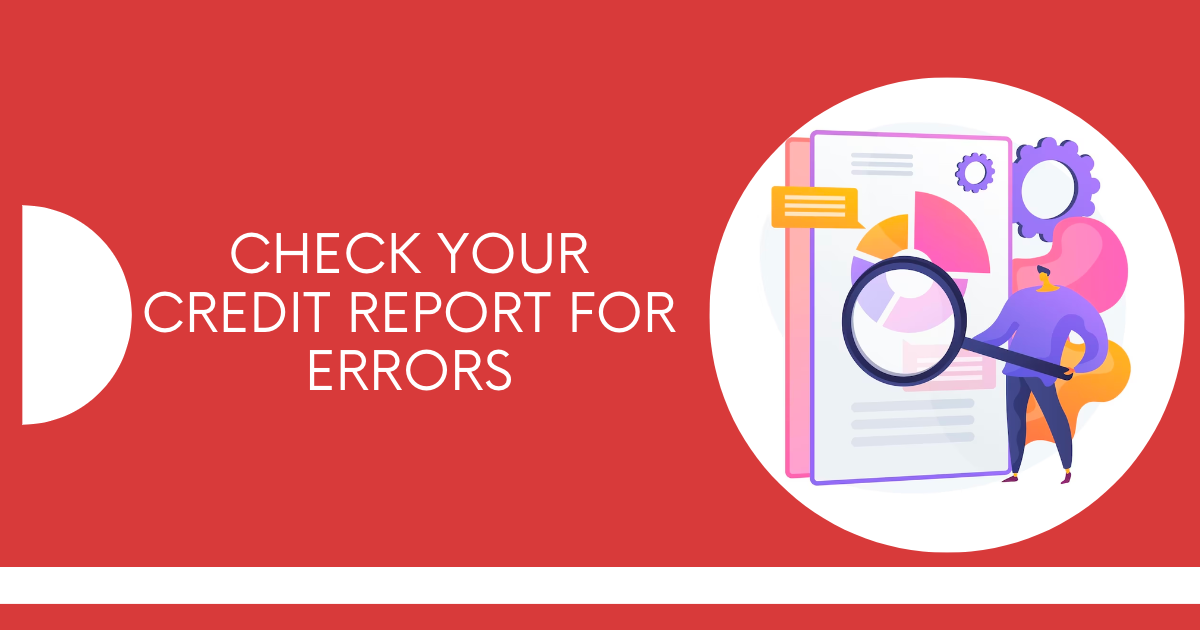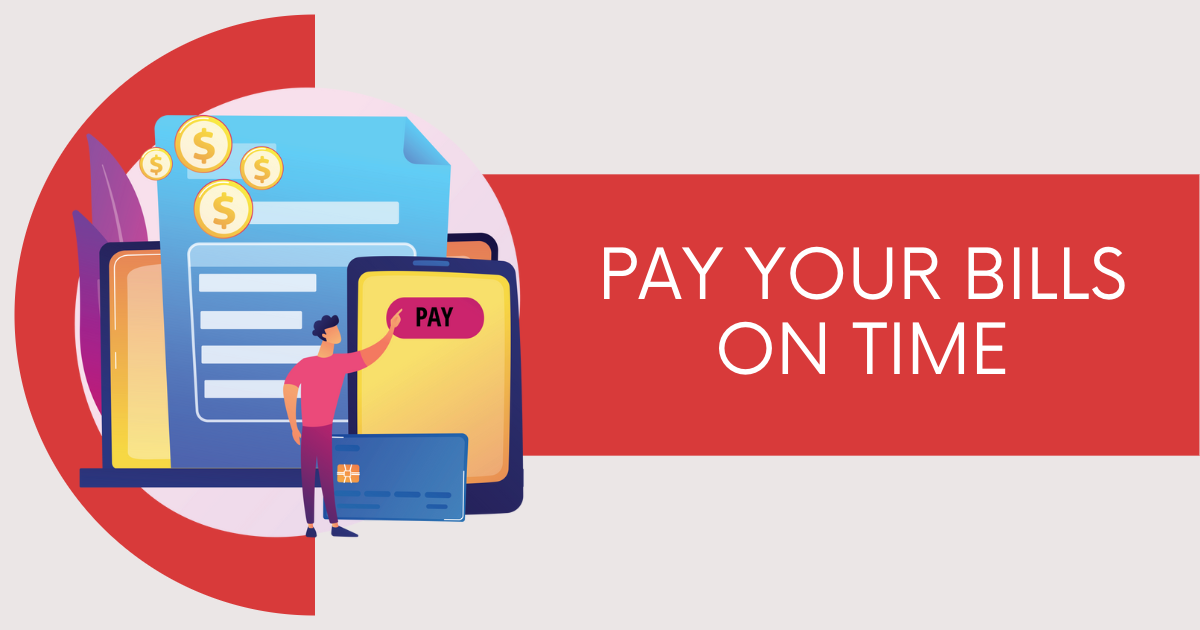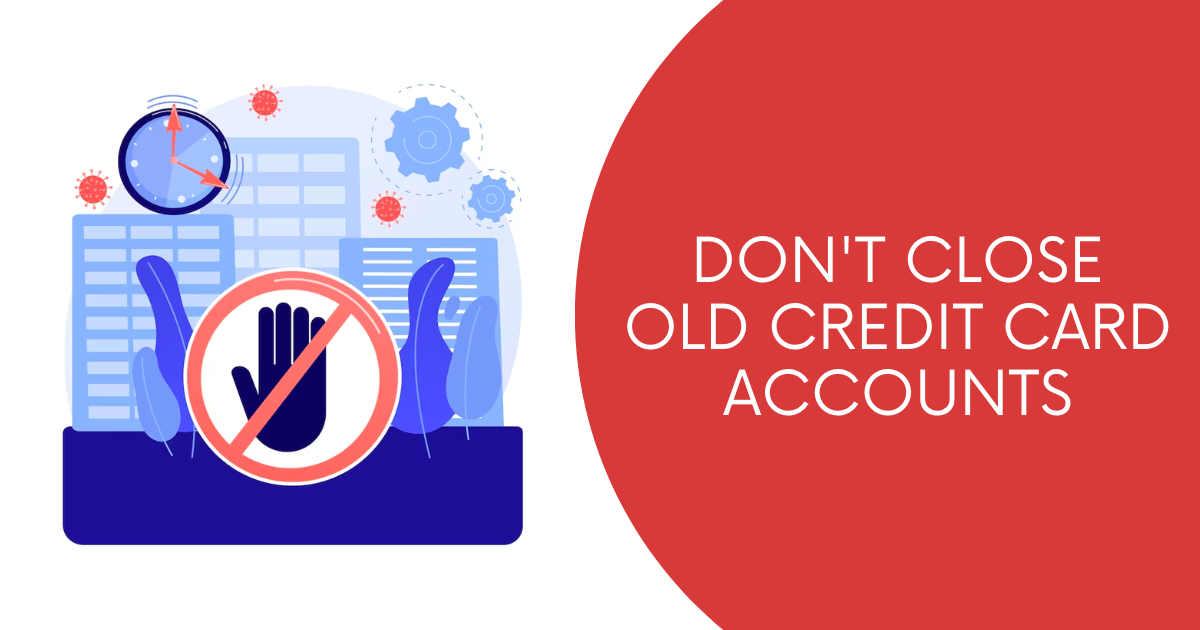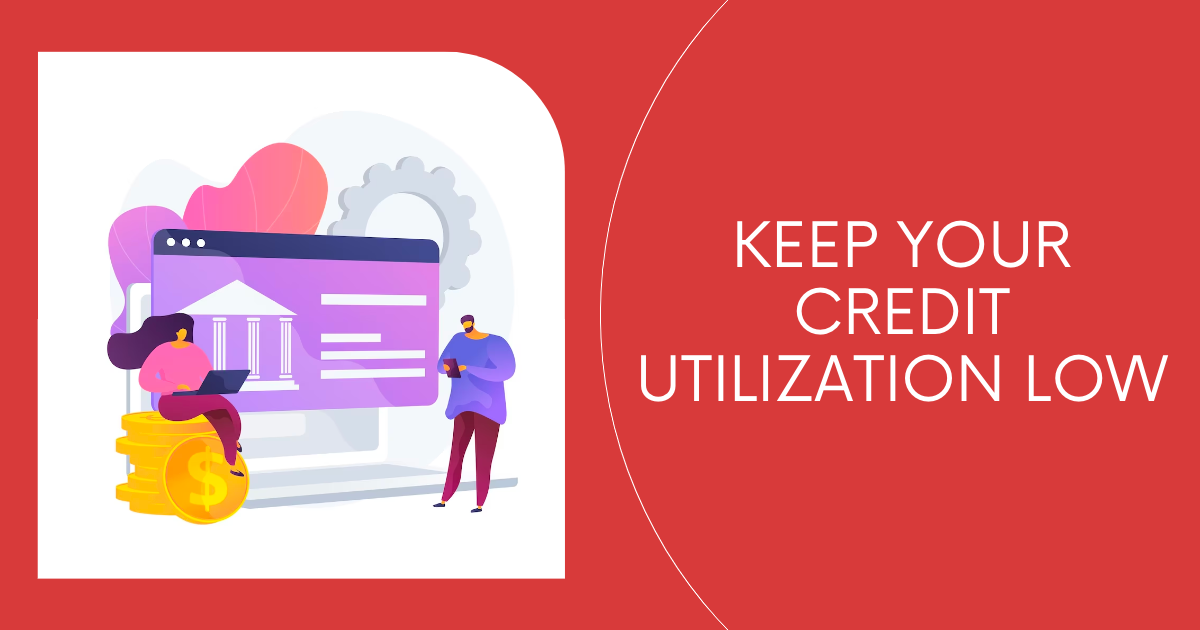
Imagine this: you’ve stumbled upon your ideal home and can’t wait to make it yours. But there’s a hiccup – your credit score isn’t up to par. Fear not! Like many others (16% of Americans, to be exact), you can overcome this obstacle.
In this blog, we’re here to help you with handy tips to give your credit score a lift before getting your mortgage pre-approval letter while applying for a home loan. With some dedication, you’ll be well on your way to better loan terms and transforming that dream home into your own.
So, let’s get started on this journey, exploring easy yet powerful tactics for a brighter financial future for you and your loved ones.
Understand the Importance of Your Credit Score

Your credit score is like a financial fingerprint, unique to you and essential in determining your financial credibility. Understanding its significance is very important, as it can open doors to a world of opportunities and help you secure your dream home.
A good credit score demonstrates your creditworthiness to lenders and plays a vital role in shaping your financial future. High credit scores can lead to lower interest rates, better loan terms, and access to premium credit cards with attractive rewards.
On the flip side, a low credit score may limit your options and result in higher interest rates, making it more challenging to achieve your financial goals. Lenders may view you as a high-risk borrower, which could lead to unfavorable terms or even loan rejections.
The bottom line: Your credit score matters. By understanding its importance and taking proactive steps to improve it, you’ll be better positioned to take possession of financial opportunities and confidently pursue your dreams.
Let’s delve into strategies to help you elevate your credit score and enhance your financial prospects.
Check Your Credit Report for Errors

In today’s fast-paced financial landscape, your credit report serves as a vital reflection of your financial health, influencing everything from loan approvals to interest rates. However, errors can sometimes sneak into your report, much like uninvited guests at a gathering, casting a shadow on your credit score.
With a professional and proactive approach, you can ensure the accuracy of your credit report and keep your financial journey on the right track.
As Realtor Darren Robertson explains, “To begin, request a free annual credit report from each of the three major credit bureaus – Equifax, Experian, and TransUnion. Did you know you’re entitled to a free report from each bureau every 12 months? Make the most of this opportunity and review your statements regularly. Compare the information across all three bureaus to ensure consistency, as discrepancies can raise red flags.”
When examining your credit report, look for errors such as incorrect personal information, accounts that don’t belong to you, duplicate accounts, and outdated or inaccurate payment history. Pay special attention to discharged debts, which should be removed from your credit report. If you are not sure how to remove discharged debt from a credit report, there are many resources available online to guide you through the process.
If you spot any errors, don’t hesitate to dispute them. Gather supporting documents, such as bank statements or paid bills, and contact the respective credit bureau to file a dispute. You can do this online, by phone, or via mail.
Be patient, as the dispute resolution process may take up to 30 days. Once the errors are corrected, your credit score should reflect the improvements. You are taking control of your financial narrative by regularly reviewing your credit report and addressing inaccuracies.
Pay Your Bills on Time

Paying your bills on time might seem like a no-brainer, but it is the foundation of good financial health and a strong credit score. Timely payments show lenders that you are a trustworthy borrower, capable of handling credit responsibly.
Did you know that your payment history makes up around 35% of your credit score? That’s right – it’s the most significant factor in shaping your overall creditworthiness. Missing even one payment can impact your score, so it’s crucial to make punctuality a priority.
To help you stay on top of your bills, consider these handy tips:
- Automate the billing process:
Set up automatic payments with your bank or service providers. That way, your bills will be paid on time, even if life gets hectic or you’re out of town.
- Set reminders:
Jot down your due dates on a calendar or set alerts on your phone to keep track of your payment schedule.
- Budget like a pro:
Create a monthly budget that includes all your expenses, from bills to groceries and fun spending. This will help you allocate funds effectively and avoid late payments due to a lack of money.
- Tackle high-interest debt:
Focus on paying off high-interest debt, like credit card balances, which can accumulate quickly and make it harder to pay bills on time.
By committing to timely bill payments, you’re investing in a brighter financial future. Consistent, on-time payments not only improve your credit score but also build trust with lenders, opening doors to greater financial opportunities.
Reduce Your Credit Card Balances

Keeping your balances low lightens your financial load and sends a positive signal to lenders, boosting your creditworthiness. The credit utilization ratio, which compares the credit you are using to your total available credit, makes up nearly 30% of your credit score. Aim for a credit utilization ratio below 30% to keep your credit score in good shape.
Here are some helpful hints to trim your credit card balances and maintain a healthy credit utilization:
- Pay more, pay often:
Don’t just settle for the minimum payment – pay more each month or divide your payments into smaller, more frequent amounts. This can accelerate your debt reduction and improve your credit utilization.
- Keep in check on new credit card spending:
While working to lower your balances, keep new credit card purchases to a minimum. This will prevent your debt from piling up and make it easier to tackle existing balances.
- Map out a debt repayment plan:
Create a feasible plan specifying how much you will contribute to your monthly credit card debt. This will help you stay focused and accountable as you work toward your financial goals.
By actively reducing your credit card balances, you’re enhancing your credit score and setting the stage for a more stable financial future.
Don’t Close Old Credit Card Accounts

It may be enticing to you to close old credit card accounts you no longer use, but it is really important to consider the potential impact on your credit score before making this decision. Surprisingly, keeping those old accounts open can actually work in your favor, strengthening your credit profile and improving your financial standing.
Closing old credit card accounts can inadvertently increase your credit utilization ratio, as it reduces your overall available credit. Higher credit utilization can negatively affect your credit score, making it crucial to keep this ratio low.
Moreover, your credit history length, which accounts for about 15% of your credit score, benefits from those long-standing accounts.
Here are some suggestions for managing old credit card accounts while maintaining a healthy credit score:
- Keep them active:
To prevent your old credit card accounts from being closed due to inactivity, use them occasionally for small, manageable purchases you can quickly pay off.
- Maintain a zero balance:
Pay off any remaining balances on your old credit cards and hold back yourself from accumulating new debt on these accounts.
- Monitor your accounts:
Regularly check your old credit card accounts for any fees, fraud, or changes in terms to ensure they remain in good standing.
- Evaluate strategically:
If you must close an account, consider closing a more recent one rather than an older account, as this will have a smaller impact on your credit history length.
Don’t Open New Credit Accounts

The prospect of a shiny new credit card with tempting rewards or a lower interest rate might have caught your attention, but it is important to think twice about the impact on your credit score before opening new accounts. Having too many fresh credit accounts can actually put a dent in your credit score, making it a high priority to be mindful and deliberate in your financial choices.
When you open new credit accounts, you might end up with multiple hard inquiries on your credit report, which can chip away at your credit score. Hard inquiries make up about 10% of your credit score and linger on your report for a couple of years. As well as, new accounts can shrink the average age of your credit history, which accounts for 15% of your score.
Here are some friendly suggestions for managing your credit accounts without compromising your credit score:
- Choose wisely:
Only apply for new credit when it is truly necessary and aligns with your financial goals. Resist the urge to impulsively sign up for store credit cards or extra lines of credit.
- Time it right:
If you need to apply for new credit, space out your applications to minimize the impact of hard inquiries on your credit score.
- Cultivate credit strategically:
Rather than opening a bunch of new accounts, concentrate on managing your existing credit responsibly. Timely payments and low credit utilization can work wonders for your credit score over time.
- Assess your situation:
Regularly evaluate your financial circumstances and credit needs to decide if and when a new credit account makes sense.
Consider a Credit Builder Loan

Imagine finding a secret weapon to help boost your credit score – the elusive credit builder loan might be just the ticket. These special loans assist folks in establishing or improving their credit history, making them a fantastic choice for anyone seeking to elevate their financial standing.
Credit builder loans come with a twist: instead of getting a lump sum upfront like traditional loans, the loan amount is safely tucked away in an account by the lender. As you make your regular monthly payments, these funds are gradually released back to you. Plus, your punctual payments are reported to credit bureaus, contributing to a higher credit score.
Here’s why you might want to give a credit builder loan a try:
- No credit or collateral required:
These loans cater to individuals with little or no credit history, so there’s no need for an established credit record or collateral to get started.
- Build good money habits:
Consistently making on-time payments for your credit builder loan helps you create a pattern of responsible financial behavior, which can work wonders for your credit score.
- Save while you grow:
Since the loan funds are kept secure, you will save money as you make your payments. Once the loan is paid off, you can access the full amount you saved.
- Enhance your credit mix:
A diverse credit mix, including various credit types, accounts for about 10% of your credit score. A credit builder loan can add some spice to your credit portfolio, further improving your score.
Keep Your Credit Utilization Low

Maintaining a low ratio can make all the difference in achieving a healthy credit score. In a nutshell, credit utilization is the percentage of your available credit that you are currently using. By keeping this number low, you’re showing lenders that you’re a responsible borrower who can manage credit wisely.
A credit utilization ratio below 30% is generally considered ideal, demonstrating your ability to use credit without overextending yourself. So how can you achieve this magic number and impress potential lenders? Here are some tips to help you master the art of low credit utilization:
- Monitor your spending:
Keep a close eye on your credit card balances and avoid making large purchases that could increase your credit utilization.
- Pay off balances promptly:
Make it a priority to pay down your credit card balances as quickly as possible, ideally in full each month, to keep your credit utilization in check.
- Request a credit limit increase:
If you have a strong payment history, consider asking your credit card issuer for a higher credit limit. This can help lower your credit utilization without reducing your spending.
- Strategically use multiple cards:
Spread out your spending on various credit cards to lower the utilization ratio on each card. Just be sure to manage all of your accounts responsibly.
Avoid Applying for Credit Cards or Loans

Each time you apply for a new line of credit, a hard inquiry is added to your credit report, potentially chipping away at your credit score. Lenders may also perceive multiple applications as a sign of financial distress, casting doubt on your ability to manage debt responsibly.
So, how can you tread carefully on your credit journey? Here are a few steps to guide you:
- Be strategic:
Only apply for new credit when it’s genuinely necessary, and consider the impact on your credit score before you leap.
- Time it right:
Space out your credit applications, giving your credit score time to recover from any potential dips.
- Focus on existing credit:
Instead of adding more credit accounts, manage your current credit responsibly, such as making on-time payments and keeping your balances low.
Be Patient and Persistent

Just as a masterful work of art takes time to create, so does a robust credit score. It results from your dedication to nurturing responsible financial habits, with each positive action slowly but surely making an impact.
To keep your spirits high and your motivation strong, consider these uplifting pointers:
- Embrace small triumphs:
Every milestone, big or small, deserves recognition. Cherish each on-time payment and every debt reduction – they all add to your ultimate success.
- Grow from challenges:
If you stumble upon an obstacle, don’t let it weigh you down. Instead, view it as a chance to learn, adapt, and bounce back stronger than ever.
- Lean on your tribe:
Share your credit-building journey with friends or family who can offer a listening ear, sage advice, or even regale you with their own tales of triumph.
Conclusion
The key to a healthy credit score lies in a few mindful steps. By understanding your credit score’s importance, making timely bill payments, managing credit utilization, and exhibiting patience and persistence, you’re setting yourself up for financial success.
These strategies will improve your credit score and lay a solid foundation for a prosperous financial future.
If you found these tips helpful, please share this blog with friends and family who could benefit from a bit of credit score guidance. Together, let’s embark on the journey to credit success and enjoy the rewards that come with it!

